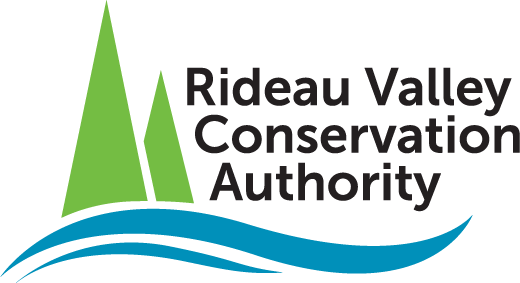RIDEAU VALLEY, JULY 10, 2025 – For minimal cost and labour, you can completely transform your grassy shoreline into a natural, functional buffer while maintaining your views and water access.
It’s all thanks to the RVCA’s Shoreline Naturalization Program, which covers up to 90% of costs to add native trees, shrubs and wildflowers to lake and river shorelines, while taking on the bulk of the work to plan, order, deliver and plant the materials.
Switching from grass to a natural shoreline can discourage nuisance geese, reduce erosion, cut down on lawn maintenance, support wildlife and keep contaminants out of the lake. In fact, it’s one of the most effective ways landowners can support their lake to reduce the weeds and harmful algae blooms that can ruin the cottage experience.
“It’s about finding a balance between protecting the reasons you love the lake, like good swimming and fishing, and making sure you can enjoy your property to the fullest,” said Shoreline Naturalization co-ordinator Meaghan McDonald. “We work closely with landowners to create a custom plan that works for them.”
This includes choosing low-growing plants to preserve their view and maintaining a cleared area around water access points.

The process begins with a site visit the year before the project is to be completed. Staff assess the shoreline’s condition, discuss the landowner’s vision and offer insights into the property’s potential.
Once the project is confirmed, staff develop a custom site plan and order the necessary plants over the winter months, to be delivered the following spring. Landowners can choose to do the planting themselves or have staff assist. Staff will also return for several years to monitor the project’s success.
“It’s such a win-win for landowners, as it costs them next to nothing and protects an asset they plan to enjoy for years to come,” McDonald said.
Since 2009, the program has planted more than 170,000 native plants on nearly 1,000 properties across the watershed, including more than 10,000 plants on 83 properties this spring.
McDonald and her team are now booking site visits for this summer and fall. Email
-30-

